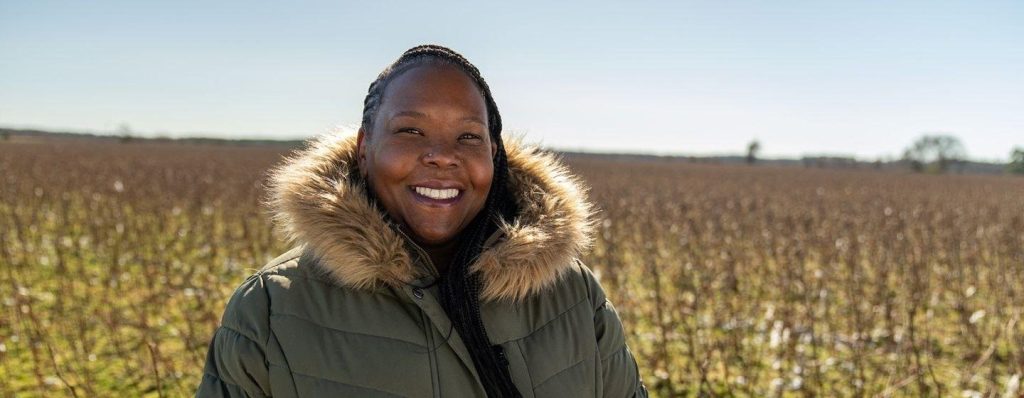June 24, 2025
Imagine it’s a stormy day, sheltered in the comfort of your home, when suddenly the power goes out. In the city, electricity might return in a few hours. But for rural communities, it may take longer, often days. While power surges can result from damaged lines or aging infrastructure, for many farmers, the biggest challenge is financial: the upfront cost of securing their own clean energy.
Yes, there are IRA incentives and government programs. But what if landowners could generate income while accessing sustainable energy, all without the high startup costs?
That’s where EnerWealth comes in.

Founded in 2017 by Ajulo E. Othow, an attorney and entrepreneur with deep roots in the South, EnerWealth is committed to providing an innovative solution to bridge the equity gap in clean energy. After witnessing the chaos Hurricane Katrina left behind, one thing stuck with Ajulo: when power disappears, so does the ability to live, work, and recover. For rural communities, that loss cuts deeper and lasts longer.
Ajulo knew energy access had to be reimagined.
From serving as U.S. Regional Deputy Director at Oxfam to partnering with local cooperatives like Roanoke Electric, she has built a career at the intersection of economic development and sustainability. EnerWealth is the natural extension of that vision — helping landowners not only power their homes, but protect their heritage.
EnerWealth’s model centers on Solar Land Leasing, an option for landowners who want to embrace clean energy but can’t afford the switch on their own. Here’s how it works:
Through a solar plus battery storage system, EnerWealth is able to maximize the use of solar energy by storing it in batteries for later use. This approach is essential in building energy resilience in communities that are vulnerable to power outages.
Ajulo’s story starts in Oxford, North Carolina, where her family has held onto their land for seven generations. Hearing stories about how her grandmother slept with a shotgun under her bed for anyone who tried to steal property highlights the importance of the memory, livelihood and resistance of the ancestral land.
Ajulo’s uncle, Dr. Benjamin Chavis, was deeply rooted in activism and a central figure in the environmental justice movement. In 1978, North Carolina officials targeted predominantly black communities for hazardous waste landfills. The community fought back — and won. That moment sparked a nationwide conversation about race, land, and environmental harm.
That legacy lives on in Ajulo’s work. Her goal is simple yet profound: make sure land stays in the hands of the people who have cared for it.
In one case, a landowner was able to cover their taxes by leasing a small plot of land. A single solar lease gave them the income to hold on, preserving not just property, but heritage.
Agrivoltaics
Why choose between growing food and producing power when you can have both? The use of agrivoltaics allows farmers to install solar panels without giving up crops. This ensures farmers have multiple revenue streams while honoring their agricultural traditions.
Community Well-being
Sustainability includes the well-being of people, too. EnerWealth supports rural landowners who have been locked out of clean energy access. It helps them protect their land, generate income and build resilience — not just against storms, but against economic uncertainty.
Ajulo knows what it means to break ground as a Black woman in the energy sector, as a community advocate, and as an entrepreneur.
“No one really knows more than you do about this particular topic, so just go with it, don’t hold back.”
People may question your authority, but only you can overcome that by showing up, owning your story, and staying grounded within your roots.
EnerWealth reminds us that sustainability is not just about technical advancement; it’s also about advancing equity and community well-being. Stories like Ajulo’s serve as a refreshing reminder that as we transition to sustainable solutions, we are also reshaping systems. It’s about giving power back to the people, quite literally
Authors: Cenisario Cano and Emma Sherrill